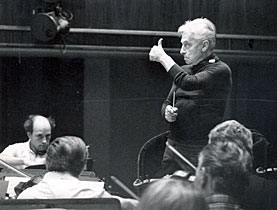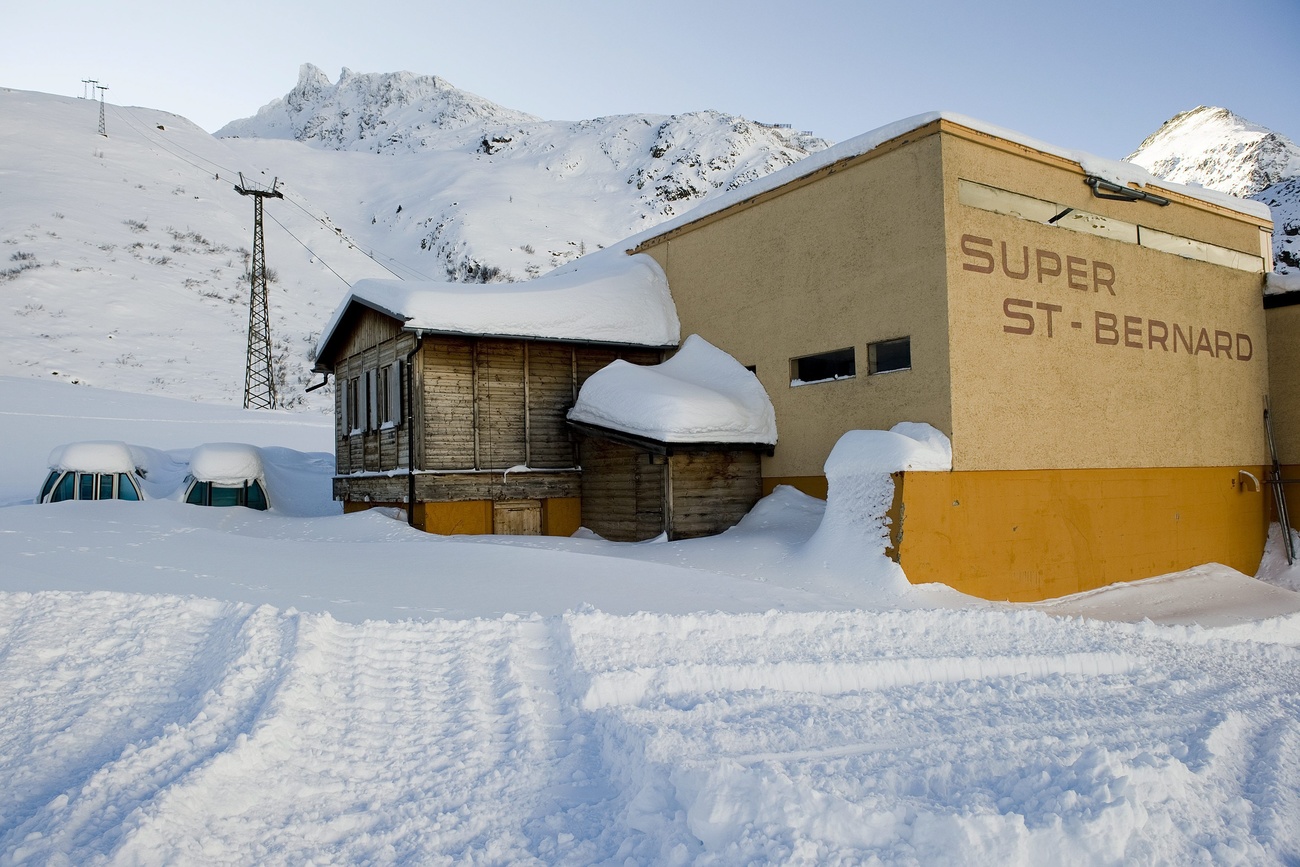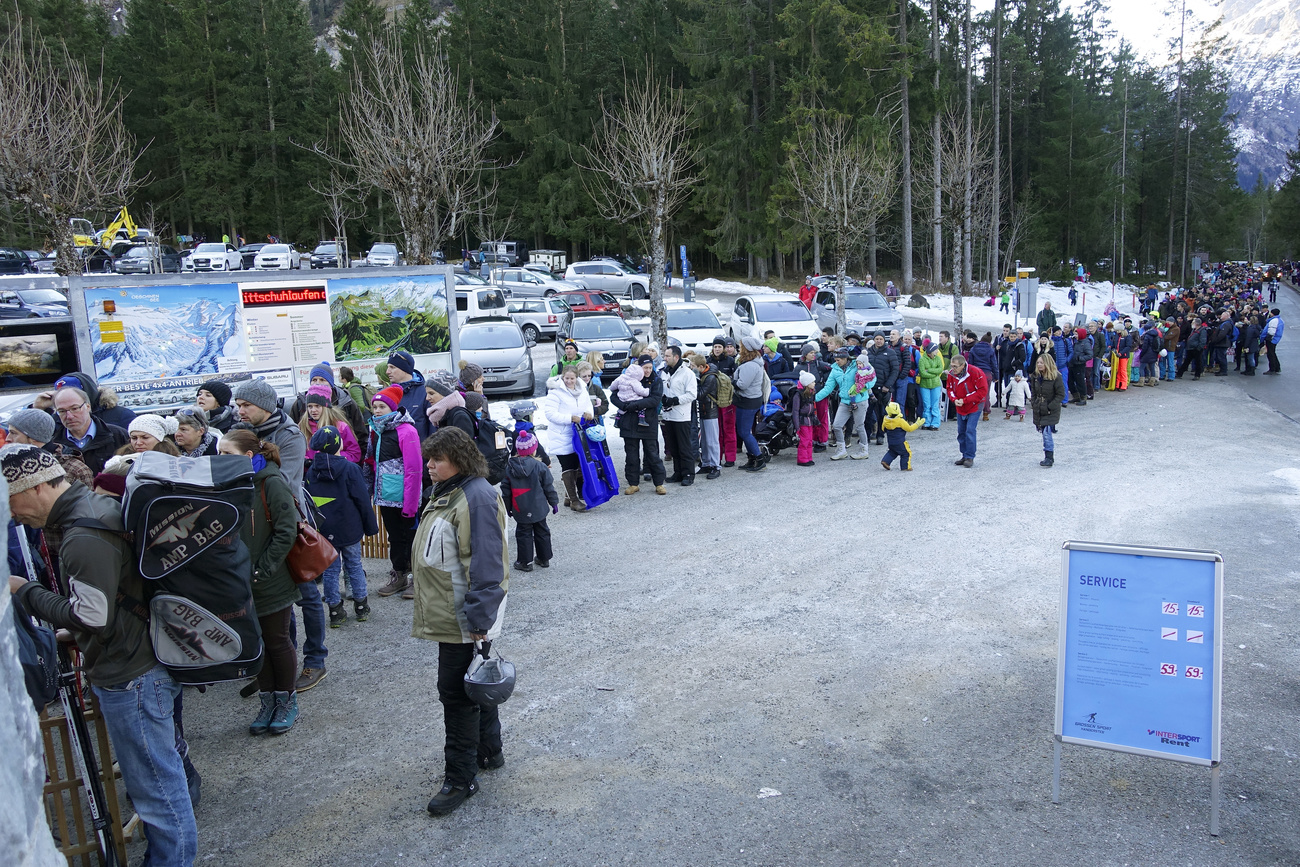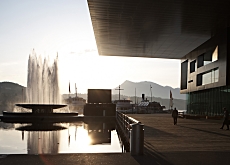Lucerne honours its long-time maestro

The Lucerne Festival is this weekend marking the centenary of the birth of legendary Austrian conductor Herbert von Karajan, who helped cement its reputation.
Karajan’s association with the festival lasted 40 years and he never forgot how the central Swiss city supported him at a time when his career was overshadowed by his Nazi past.
The conductor gave almost 70 concerts in Lucerne, starting in 1948 and ending in 1988, the year before his death.
“He always came on August 31 and September 1 and his fans always booked tickets well in advance. He really contributed to the international fame of the festival,” its head of public relations, Barbara Higgs, told swissinfo.
The festival is holding a Karajan celebration on Saturday and Sunday. It includes a concert featuring German violinist Anne-Sophie Mutter, who was discovered by Karajan in Lucerne in 1976.
Karajan was a flamboyant figure in public, famous for his musical perfectionism and drive. A child prodigy on the piano, he made his professional conducting debut in Salzburg in 1929.
He spent time in Germany before helping set up the London Philharmonic in 1948. He later became music director of the Berlin Philharmonic, a post he held for 34 years.
But the Austrian also had a controversial side. He was a Nazi Party member from 1933 to 1942, but was exonerated by an Allied tribunal after the Second World War.
It is not clear whether Karajan joined the party for career or ideological reasons. But it nonetheless cast a shadow.
Lucerne’s offer
“Lucerne was the first town to invite Karajan to conduct abroad, as he was not permitted to conduct in Germany and in England. This was why he remained a friend of Lucerne until his death,” said Erich Singer, the festival’s programme editor, who knew Karajan.
“Karajan was a very good conductor and everybody spoke of him before the war,” he told swissinfo. “Lucerne was trying to have the best conductors and orchestras from the beginning to establish the festival.”
In 1969 he received Lucerne’s Art Prize in recognition of his services to the city.
Singer’s involvement with the conductor and the festival started in the early 1970s when he was appointed to “look after” Karajan during the rehearsals and concerts.
It was during this time that Singer gained a rare glimpse of the private Karajan.
“He spoke very little about music in private. Many people may wonder why, but I suppose it was because he wanted to be alone with music, so he kept his thoughts top secret,” he said.
In fact, Karajan was happier talking about fast cars, another passion of his.
Perfectionism
The conductor was a perfectionist in his personal as well as his public life. Singer says Karajan could be very self-critical, was never late and hardly ever socialised after concerts. He was even sometimes shy, in contrast to his normally colourful stage persona.
“He wanted to be a star [in public], but privately he was a completely different person,” said Singer.
Karajan was hugely successful at Lucerne, particularly in the 1960s and 70s. For many, Singer says, the Karajan concerts were the highpoint of the festival.
The conductor almost always brought his Berlin Philharmonic along. But in 1984, Singer recalls, he had one of his legendary fallings out with his musicians.
This resulted in an anxious time for the festival before the Vienna Philharmonic was drafted in at the last minute.
Karajan gave his last performance in Lucerne in 1988, at the age of 80 and in failing health.
“Critics always say that in general Karajan’s sound was a little bit bourgeois but that’s wrong. His style changed a lot over the years,” Singer told swissinfo.
“And there are some works that he conducted that I will never forget, such as Verdi’s Requiem in 1963 or Shostakovich’s 10th Symphony.”
swissinfo, Isobel Leybold-Johnson
Saturday, January 26: concert at 7.30pm with Karajan’s prize pupil, the Japanese conductor Seiji Ozawa. The solo part in Beethoven’s Violin Concerto will be taken by Anne-Sophie Mutter. It is already sold out but there may be some returns so people are advised to contact the ticket hotline (see website).
Sunday, January 27: matinee concert with the Twelve Cellists of the Berlin Philharmonic at 11am. Tickets are still available.
A public podium discussion, with guests including Anne-Sophie Mutter, will take place at 3pm.
Karajan was born on April 5, 1908 in Salzburg, Austria. He made his debut as a conductor in 1929.
After posts at Ulm and Aachen, he fled to Italy in 1944. He helped set up the London Philharmonic in 1948 and became music director of the Berlin Philharmonic in 1955.
A Nazi Party member from 1933 to 1942, Karajan was later exonerated by an Allied tribunal, but his American debut in 1955 caused public protests.
Karajan also worked with the Vienna State Opera, the Salzburg Festival and at La Scala, Milan. He was instrumental in the development of the compact disc.
He died in 1989, a few months after resigning his position in Berlin.

In compliance with the JTI standards
More: SWI swissinfo.ch certified by the Journalism Trust Initiative












You can find an overview of ongoing debates with our journalists here . Please join us!
If you want to start a conversation about a topic raised in this article or want to report factual errors, email us at english@swissinfo.ch.